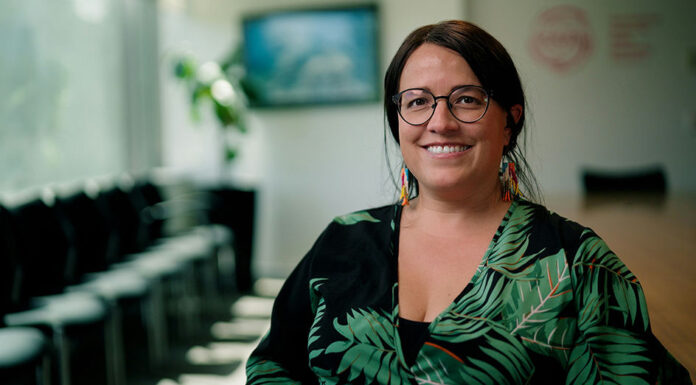Claudia Lagos is propelling our understanding of the cosmos from the very heart of Western Australia. The University of Western Australia’s own associate professor – whose pioneering work in galaxy formation and evolution has earned her the prestigious Pawsey Medal – is shaping a new era of astrophysics that blends high-powered computer simulations with open-access scientific tools. Her journey, marked by international accolades and a passion for collaborative research, is setting a standard that resonates well beyond Perth.
A Portrait of a Modern Astrophysicist
Based at the UWA node of the International Centre for Radio Astronomy Research (ICRAR), Associate Professor Lagos is dedicated to unravelling the mysteries of galaxy formation. In her day-to-day work, she employs advanced computer simulations to test whether the laws of physics can give rise to structures as remarkable as the Milky Way. This meticulous process – where simulated universes are compared with real astronomical observations – has significantly advanced our grasp of the role that supermassive black holes and star formation play in shaping galaxies. It is this innovative approach that earned her the Pawsey Medal, an award with an enduring legacy since 1967, celebrating early career achievements in physics and radio astronomy.
The SHARK Legacy: Open-Source Science for All
Perhaps one of Lagos’s most influential contributions is the development of SHARK, an open-source semi-analytic model designed for simulating galaxy formation. By making this tool freely available to the global research community, she is fostering a culture of transparency and collaboration that transcends traditional academic silos. In an era when big data and complex simulations are becoming the bedrock of astrophysics, open-source initiatives like SHARK are not only democratizing access to critical research tools but are also setting a benchmark for future projects. Lagos has been clear about her commitment to ensuring that every researcher – regardless of location or resource limitations – can scrutinise and build on her work.
ICRAR, UWA, and the WA Connection
For the people of Western Australia, Lagos’s accomplishments are a source of pride and a clear indicator of the state’s pivotal role in global astronomy. ICRAR has long been recognised as a centre of excellence, underpinning high-profile projects like the Murchison Widefield Array and contributing to the future Square Kilometre Array (SKA) initiative. These efforts benefit from WA’s pristine, radio-quiet skies that allow astronomers to probe the cosmos with minimal interference. Lagos’s work, therefore, not only enriches our scientific understanding but also reinforces the region’s reputation as an essential hub for astronomical research.
Historical Context and Comparisons
The Pawsey Medal that honours Lagos commemorates the legacy of Joseph L. Pawsey, a trailblazer in radio astronomy whose work set the stage for many of today’s breakthroughs. Past recipients of the award have often been at the forefront of emerging technologies and methodologies in physics and astronomy. Lagos’s contributions, particularly her seamless integration of theoretical models with observational data, echo this tradition while simultaneously pushing the boundaries of our knowledge.
Open-source models in astrophysics – such as Durham University’s GALFORM – have provided valuable frameworks in the past, yet SHARK distinguishes itself by its unfettered accessibility and community-oriented design. This commitment to free exchange of ideas is crucial in an era defined by international collaboration. Lagos, who has experienced academic life across Chile, Germany, and Australia, reflects a truly global perspective in science. Her background not only enriches her research but also exemplifies the power of diverse experiences in advancing our collective knowledge.
Implications for the Broader Scientific Community
At a time when the world is grappling with far-reaching challenges – from geopolitical conflicts to climate crises – the unifying nature of scientific enquiry becomes especially important. Lagos has remarked on how the pursuit of knowledge fosters a shared curiosity that transcends borders and differences. In offering tools like SHARK to the wider community, she reinforces the essential notion that science is most effective when it is an open, communal endeavour.
Beyond its academic merits, the development of such computational models has significant economic and environmental implications. WA continues to invest in high-tech research and infrastructure that not only positions the state as a leader in astronomy but also creates opportunities for technology transfer, innovation, and local economic growth. The enhanced understanding of cosmic phenomena can inspire new technologies and inspire future generations of scientists in both Australia and beyond.
Looking to the Future
Claudia Lagos’s achievements are a testament to the dynamic interplay between innovative research, collaborative spirit, and the unique resources available in Western Australia. As her work paves the way for future discoveries, it also raises important questions about how we can better harness global talent in tackling the most profound scientific mysteries. With initiatives like SHARK, the astronomical community is now better equipped to explore the cosmos, ensuring that our understanding of the universe continues to grow in clarity and depth.
For Western Australia, Lagos’s success is not just an isolated triumph but is emblematic of the broad, transformative potential held within local research institutions and the collaborative networks they forge globally. Her journey from Chile to some of the most influential scientific hubs in the world underscores the universal language of curiosity and exemplifies how the demands of modern science can be met with ingenuity and inclusiveness.
Sources:
• Australian Academy of Science: Pawsey Medal – https://www.science.org.au/awards/pawsey-medal
• 2023 Honorific Awards Announcement – https://www.science.org.au/news-and-events/news/2023-australian-academy-science-honorific-awards
• UWA Profile: Claudia Lagos – https://www.uwa.edu.au/staff/claudia-lagos
• SHARK Model (GitHub repository) – https://github.com/clagos/shark
• ICRAR: About Us – https://www.icrar.org/about/
• SKA Australia – https://www.ska.gov.au/
• MERAC Prize for Theoretical Astrophysics – https://www.eas.eu/merac-prizes
• Chile’s “100 Women Leaders” – https://www.100mujereslideres.cl/
• Sloan Digital Sky Survey – https://www.sdss.org/
• GALFORM Model – https://www.galformodelling.org/

